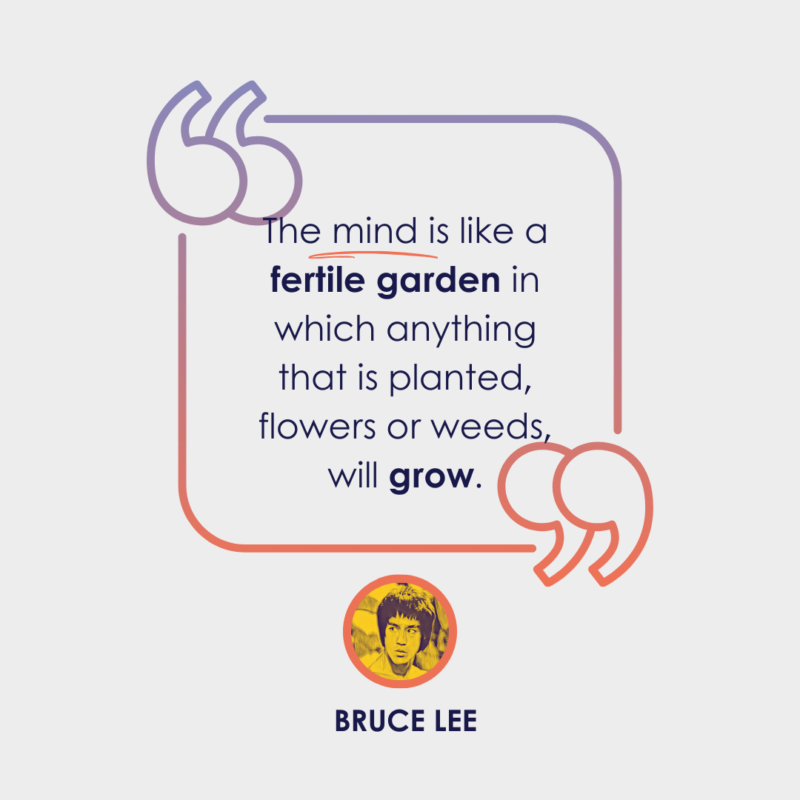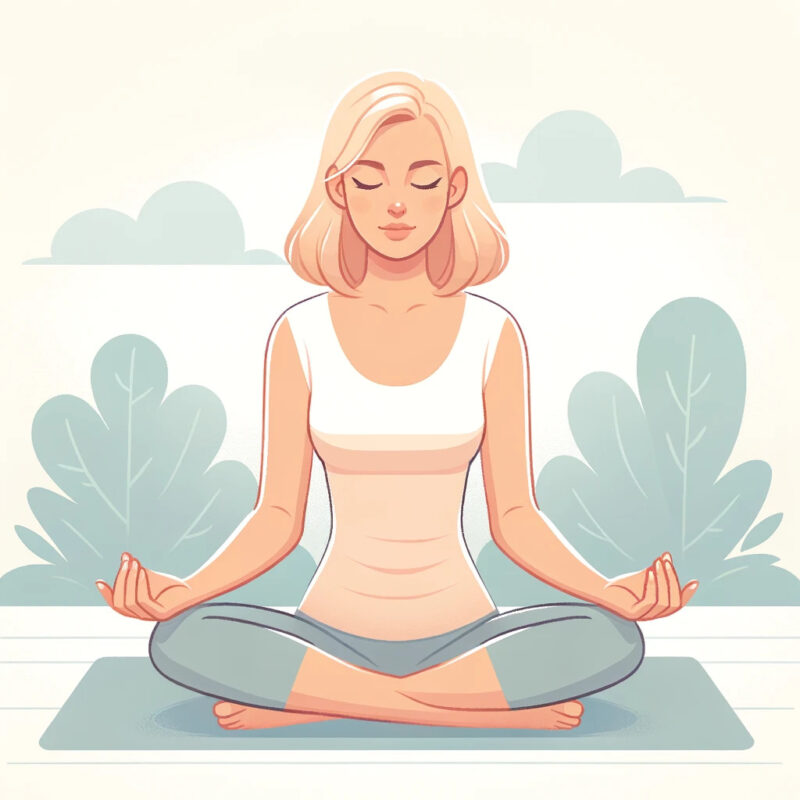
“Brain Laundry”: Refreshing Your Mental Hygiene for Clarity and Wellness
Just as we regularly do our laundry to keep our clothes clean and fresh, our minds also need a good cleaning to stay healthy and clear. This is where the concept of “Brain Laundry” – a simple and effective way to cleanse your mental space and maintain emotional health – becomes especially helpful.
Let’s dive into how you can practice brain laundry and keep your mind in tip-top shape.
Separating the Lights from the Darks: Sorting Positive and Negative Thoughts
👕Start by distinguishing between positive and negative thoughts.
Positive thoughts can brighten your day, while negative thoughts can weigh you down.
Identify which thoughts are beneficial and which ones are not. Write them down if it helps.
For example, counter negative thoughts like, “I’m not good at this,” with positive ones like, “I’m learning and improving every day.”

👕Incorporate mindfulness and meditation into your daily routine.
These practices help reduce stress and clear your mind.
Dedicate a few minutes each day to mindfulness exercises or meditation.

Here’s how you can get started and some specific scenarios where this can be particularly beneficial:
- Start Your Day Right:
-
-
- Scenario: You wake up feeling anxious about the day ahead.
- Action: Spend five minutes in mindfulness meditation before starting your day.
- Outcome: You’ll feel more grounded and ready to face your tasks with a clear mind.
-
- Midday Stress Relief:
-
-
- Scenario: You’re overwhelmed with work or school tasks.
- Action: Take a ten-minute break to practice mindfulness.
- Outcome: This break will help you manage stress, improve your concentration, and boost productivity for the rest of the day.
-
- Winding Down Before Bed:
-
- Scenario: You’re having trouble winding down before bed.
- Action: Dedicate ten minutes to a calming meditation session.
- Outcome: This can help you relax, promoting better sleep and overall restfulness.
How to Get Started
- Find a Quiet Place:
-
-
- Choose a quiet, comfortable spot where you won’t be disturbed.
-
- Get Comfortable:
-
-
- Sit or lie down in a relaxed position.
-
- Close Your Eyes and Breathe:
-
-
- Close your eyes and take deep, slow breaths.
- Focus on your breathing, feeling the air enter and leave your lungs.
-
- Let Go of Stressful Thoughts:
-
- Acknowledge any stressful thoughts that arise, then gently let them go.
- Bring your focus back to your breathing.
Long-Term Benefits
- Calmness: Regular practice helps you stay calm in stressful situations.
- Focus: Improved concentration and mental clarity.
- Emotional Regulation: Better control over your emotions, reducing the likelihood of overreacting to challenges.
- Enhanced Well-being: Overall improvement in mental health, contributing to a happier and healthier life.
👕Create a regular routine for your brain laundry to prevent mental overload.
Set aside time each week to reflect on your thoughts, journal, or talk to a friend or therapist.
Consistent mental check-ins help you stay aware of your mental state and make necessary adjustments.
This proactive approach can prevent stress and negativity from building up, keeping your mind clearer and more balanced, as you take on the daily challenges of autoimmunity.

👕Select the right tools to enhance your mental hygiene.
- Digital Detoxes: Spend some time away from screens to reduce information overload and allow your mind to rest.
- Proper Sleep Hygiene: Ensure you get enough sleep by maintaining a regular sleep schedule and creating a relaxing bedtime routine.
- Physical Exercise: Regular physical activity can boost your mood and improve your overall mental health. Don’t feel like getting started on exercise? This blog post can help you transform your approach to exercise, even when living with autoimmune conditions.
Related Video: Decluttering Your Life: How Cleaning and Mental Health Are Connected | Dawn Potter, PsyD
Feeling anxious, stressed, or unable to focus? Look around – is clutter taking over? Research shows mess impacts mental health. Clinical psychologist Dawn Potter, PsyD, shares how decluttering can boost your mood and reduce tension.
As we explore the concept of “brain laundry,” we find a connection. Just as we cleanse our minds, cleaning our physical space can refresh our mental state. Decluttering is also like doing laundry for your brain – it clears away the mess and leaves you feeling fresh and focused. Watch the video below.
Final Thoughts
“Brain Laundry” is a powerful concept that encourages you to take care of your mental hygiene just as you would your physical cleanliness.
By sorting through your thoughts, practicing mindfulness, establishing a regular routine, and using the right tools, you can maintain a clear and healthy mind.
Start your brain laundry routine today and enjoy the benefits of improved clarity and wellness.
Want to maximize the benefits of mental clarity to support your autoimmune healing? Join the BrightlyThrive™ Community and connect with others who also on a journey to rejuvenating their minds and bodies as they deal with autoimmune conditions. Share tips, find support, and discover the best practices for mental and physical wellness. Download the BrightlyThrive app today and start your journey brightly thrive! 🚀💪

References
Daryanani, R. (2023, November 5). Brain Laundry. Reflect & Breathe. https://reflectandbreathe.substack.com/p/brain-laundry
Positive vs Negative Thoughts: Which Will Win the Battle? (2024, May 7). Believe In Mind. https://www.believeinmind.com/self-growth/positive-vs-negative-thoughts/
Harvard Health Publishing. (2021, January 1). What meditation can do for your mind, mood, and health. Harvard Health. https://www.health.harvard.edu/staying-healthy/what-meditation-can-do-for-your-mind-mood-and-health
5-Minute Meditation – Headspace. (n.d.). Headspace. https://www.headspace.com/meditation/5-minute-meditation
Hougaard, R., & Carter, J. (2023, November 15). How to Practice Mindfulness Throughout Your Work Day. Mindful. https://www.mindful.org/how-to-practice-mindfulness-throughout-your-work-day/
Davenport, B. (2022, August 14). Find An Oasis Of Inner Peace With This Calming Meditation Script. Mindful Zen. https://mindfulzen.co/calming-meditation-script/
Linder, J. N. (2019, May 9). 5 ways mindfulness practice positively changes your brain. Psychology Today. https://www.psychologytoday.com/us/blog/mindfulness-insights/201905/5-ways-mindfulness-practice-positively-changes-your-brain
7 Screen-Free Ways to Work and Learn: How to Avoid Screen Fatigue and Improve Performance. (n.d.). Mind Tools. https://prime.mindtools.com/pages/article/screen-free-work-learn.htm
Breus, M. J. (2021, March 30). Need a mood lift? Try a regular sleep schedule. Psychology Today. Retrieved from https://www.psychologytoday.com/us/blog/sleep-newzzz/202103/need-mood-lift-try-regular-sleep-schedule
Exercise and mental health. (n.d.). healthdirect. https://www.healthdirect.gov.au/exercise-and-mental-health
TAGS:
CATEGORIES:






